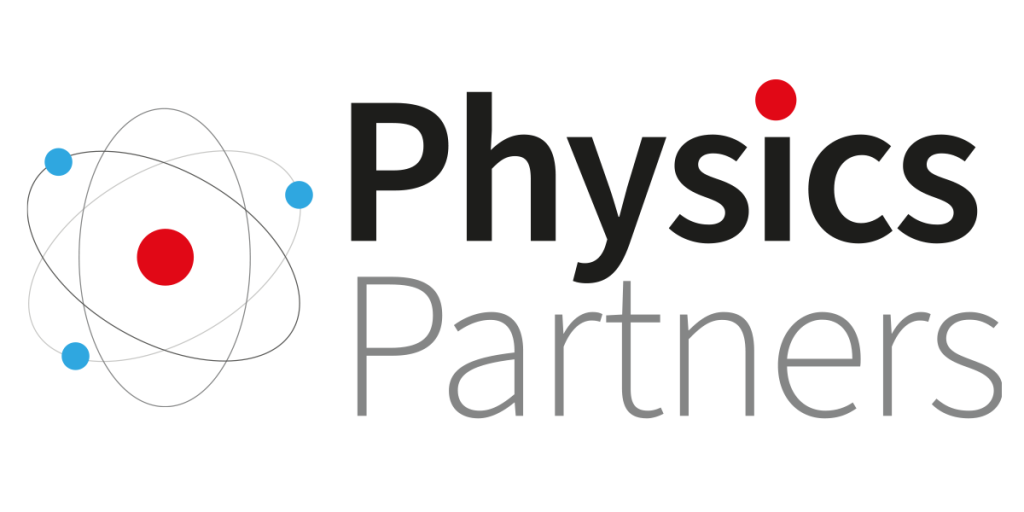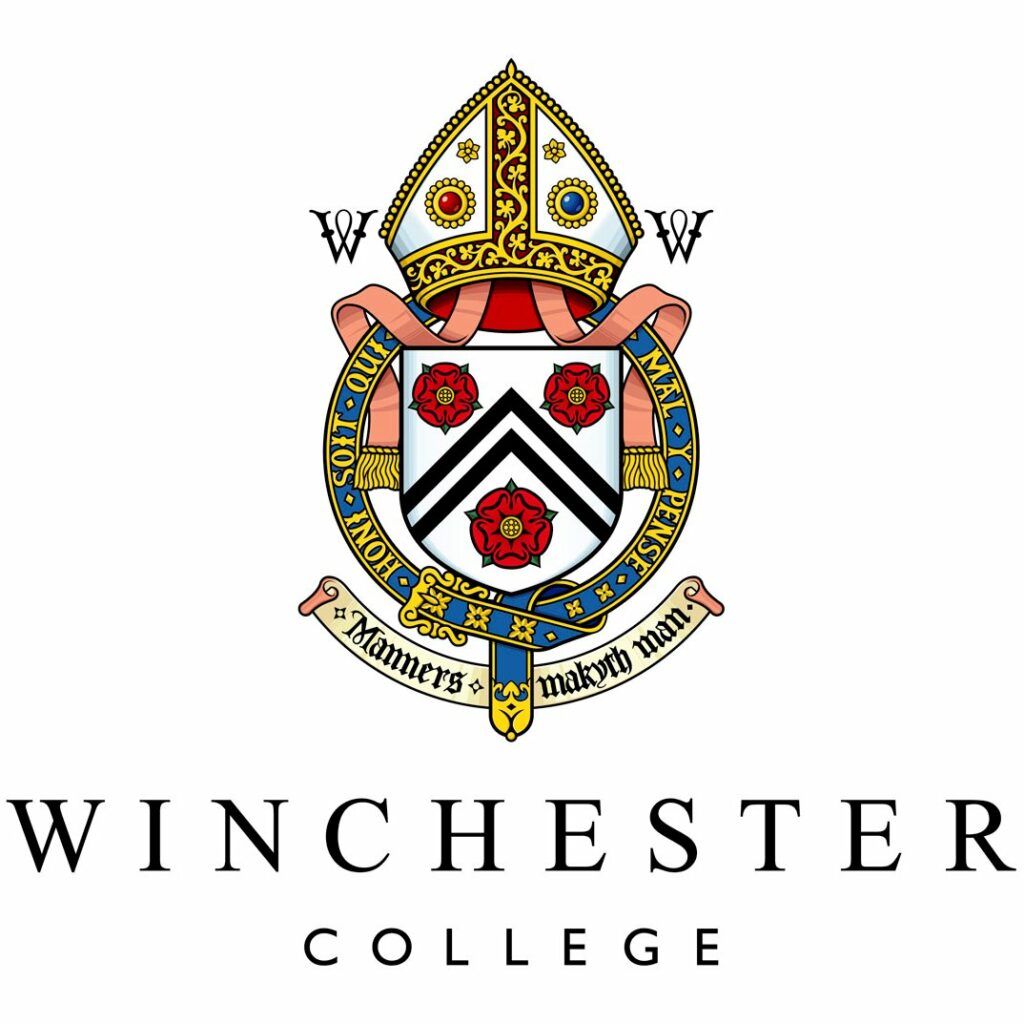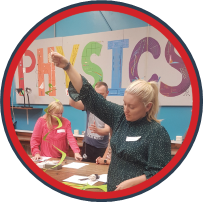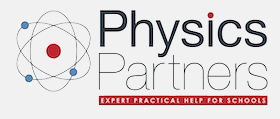

** Sold out**
Join us for a day of physics workshops and a topical keynote at the Winchester College Festival of Physics on Saturday 5th July, 9.30am – 3.30pm. Generously hosted by Winchester College (SO23 9PG), this full day of training and workshops will include sessions for all secondary teachers of physics, including ECTs and trainees. Technicians are also welcome. Lunch and refreshments are included, as you will leave with plenty of festival resources!

Sessions will include hands-on practical activities and ideas for making your teaching even more engaging, all delivered by expert physics teacher trainers. There will also be a chance to network with colleagues from across the region and browse exhibition stands showcasing nationally and locally available resources, as well as physics equipment and suppliers.
We are delighted to be welcoming Andrew Hanson, from The National Physical Laboratory as the keynote speaker and are looking forward to his fascinating talk at the end of the day.
Booking for this event is now live and will close on Thursday 26th June. Please make your workshop preferences when you book and we will do our best to accommodate your choices. Please find full programme details below, followed by the booking form.
Standard ticket price £15 per person.
No charge for Initial Teacher Trainees.
This event is now closed for booking
There is the option to request an invoice upon booking. You may find this letter template useful for asking your school to pay the fee.
Checkout issues? Book here.Keynote Speaker: Andrew Hanson ‘It’s ALL Science to me’
It’s ALL Science to me – how people adapted and changed measurement with time and how critical it is for everything we care about.
Andrew Hanson, Outreach Manager for the National Physical Laboratory which is the UK’s National Metrology Institute. The talk will highlight some interesting, bizarre and thought provoking case studies from the 125 years of NPL, with examples from all three sciences. The year 2025 marks the 150th Anniversary of the Metre Convention, so join us to celebrate!
Andrew was born in Norwich and has been an artist, botanist, physicist, musician, rock band manager and performer, with high points that include creating a machine to measure the shininess of cats, winning a big filmmaking competition, doing several talks at the Royal Institution and getting an award from the Queen for services to STEM.
Andrew will also talk about NPL’s Outreach propositions which include online STEM activities and the offer to run in-school talks and workshops.
Workshop 1 choices
| 1.1 Newtons Laws: Separating Fact from Friction | Trevor Plant | KS3-KS4 | A few simple rules when talking about forces makes Newton’s laws so much less likely to lead to confusion. So we’ll use lots of hands-on examples and discuss how we apply the rules. We’ll also show some fabulous eye-opening demonstrations of Newton’s laws that I guarantee you will be using when you teach this next… | Trevor is an experienced coach and teacher educator who has previously worked for the IOP and the Universities of Brighton, Portsmouth and Southampton with trainee and practicing teachers. Trevor taught A-level physics for over 28 years. |
| 1.2 Using Slinkies and Water to Teach Key Ideas in Wave Physics | Steve Hearn | KS3 -KS4 | How the behaviour of mechanical waves can help us understand light ray diagrams. Using common or easily obtainable apparatus to measure, calculate and think about wave motion. | Steve is an experienced physics teacher and physics teacher educator/mentor. Currently working on ITT with SCITTS and Universities but most importantly mentoring teachers who teach physics out of specialism. |
| 1.4 Space for Inspiration | Jeremy Thomas | KS3 -KS4 | Ideas and resources for teaching physics through space topics. Despite the inspirational appeal of space and space exploration for teachers and learners alike, there are few specific items covering the topic in the National Curriculum or in exam board specifications up to GCSE. In this session I will share space themed ideas and resources to cover existing physics topics with the aim of allowing teachers to incorporate ideas about space into their lessons without adding to their workload burden. I will also discuss the importance of space exploration and exploitation to the UK economy and discuss how the opportunities offered to pupils by the space sector can be emphasised as real world applications of the physics topics being covered in lessons. | Jeremy is Outreach and Public Engagement Fellow at the Faculty of Technology, Institute of Cosmology & Gravitation at Portsmouth University. He was previously an SPN Coach and STEM partnership lead at Abingdon School. |
| 1.5 High Demand GCSE AQA Questions | Damian Gent | KS4 | Assessment structure and what makes questions High Demand | Damian Gent, AQA representative |
| 1.6 A-level Forces & Motion | Dan Roberts | KS5 | We will have a circus of experiments set up around the room, including Circular motion (a=omega squared * r) with or without a salad spinner, Force-Motion phase relationship, and projectile motion, momentum and resolving g on an incline. Collect data in real-time that will bring phenomena to life. | Dan is Company Director of Instruments Direct. He is also a STEM Ambassador. |
Workshop 2 Choices
| 2.1 Newtons Laws: Separating Fact from Friction (repeat session) | Trevor Plant | KS3 -KS4 | A few simple rules when talking about forces makes Newton’s laws so much less likely to lead to confusion. So we’ll use lots of hands-on examples and discuss how we apply the rules. We’ll also show some fabulous eye-opening demonstrations of Newton’s laws that I guarantee you will be using when you teach this next… | Trevor is an experienced coach and teacher educator who has previously worked for the IOP and the Universities of Brighton, Portsmouth and Southampton with trainee and practicing teachers. Trevor taught A-level physics for over 28 years. |
| 2.2 Using Slinkies and Water to Teach Key Ideas in Wave Physics (repeat session) | Steve Hearn | KS3 -KS4 | How the behaviour of mechanical waves can help us understand light ray diagrams. Using common or easily obtainable apparatus to measure, calculate and think about wave motion. | Steve is an experienced physics teacher and physics teacher educator/mentor. Currently working on ITT with SCITTS and Universities but most importantly mentoring teachers who teach physics out of specialism. |
| 2.3 Taking the Pressure off Teaching Pressure | Peter Wilkinson | KS4 | In this session we will look at some of the difficulties in understanding pressure which pupils have and the misconceptions they have about it. I will share several demonstrations and examples which you can use to enliven and enrich your teaching of this topic. | Peter is a Physics Partners Coach and Head of Physics at Tormead School, Surrey. |
| 2.4 Teaching Energy | Dorian Pascoe | KS4 | This session looks at ways to develop students’ understanding of Energy Stores and Pathways – including exciting demonstrations and practical work, useful simulations, how we can model language in a way that supports calculation work, and more! | Dorian is a Physics Partners Coach and has worked for almost two decades in secondary education. He has held numerous roles with the IOP, STEM learning, BBC bitesize and other educational establishments including the National Space Academy as a Space Advocate. |
| 2.5 CLEAPSS Updates and Physics Practicals | Samir Moezzi | KS4 | This talk/workshop will demonstrate some recent examples of the CLEAPSS physics make-it practicals including an air track, electroscope, and shuttling ball apparatus using 3D printing. There are some novel physics practicals ideas including the use of mains power meters and datalogging using mobile phones/tablets. We will also discuss some recent health and safety updates with respect to Physics practicals. | Samir has over 15 years of experience in education and more than a decade dedicated to radiation protection. He is an expert in the field of radioactive materials used in schools and has been a CLEAPSS adviser since September 2013, running over 300 RPS training courses, both online and in-person, across the country. He has also delivered talks and workshops for a number of educational organisations including IOP, ASE and The Ogden Trust. |
| 2.6 A-level Forces & Motion (repeat session) | Dan Roberts | KS5 | We will have a circus of experiments set up around the room, including Circular motion (a=omega squared * r) with or without a salad spinner, Force-Motion phase relationship, and projectile motion, momentum and resolving g on an incline. Collect data in real-time that will bring phenomena to life. | Dan is Company Director of Instruments Direct. He is also a STEM Ambassador. |
| 2.7 High Demand GCSE AQA Questions (repeat session) | Damian Gent | KS4 | Assessment structure and what makes questions High Demand | Damian Gent, AQA representative |
Workshop 3 Choices
| 3.1 Newtons Laws: Separating Fact from Friction (repeat session) | Trevor Plant | KS3 -KS4 | A few simple rules when talking about forces makes Newton’s laws so much less likely to lead to confusion. So we’ll use lots of hands-on examples and discuss how we apply the rules. We’ll also show some fabulous eye-opening demonstrations of Newton’s laws that I guarantee you will be using when you teach this next… | Trevor is an experienced coach and teacher educator who has previously worked for the IOP and the Universities of Brighton, Portsmouth and Southampton with trainee and practicing teachers. Trevor taught A-level physics for over 28 years. |
| 3.3 Taking the Pressure off Teaching Pressure (repeat session) | Peter Wilkinson | KS4 | In this session we will look at some of the difficulties in understanding pressure which pupils have and the misconceptions they have about it. I will share several demonstrations and examples which you can use to enliven and enrich your teaching of this topic. | Peter is a Physics Partners Coach and Head of Physics at Tormead School, Surrey. |
| 3.4 Space for inspiration (repeat session) | Jeremy Thomas | KS3 -KS4 | Ideas and resources for teaching physics through space topics. Despite the inspirational appeal of space and space exploration for teachers and learners alike, there are few specific items covering the topic in the National Curriculum or in exam board specifications up to GCSE. In this session I will share space themed ideas and resources to cover existing physics topics with the aim of allowing teachers to incorporate ideas about space into their lessons without adding to their workload burden. I will also discuss the importance of space exploration and exploitation to the UK economy and discuss how the opportunities offered to pupils by the space sector can be emphasised as real world applications of the physics topics being covered in lessons. | Jeremy is Outreach and Public Engagement Fellow at the Faculty of Technology, Institute of Cosmology & Gravitation at Portsmouth University. He was previously an SPN Coach and STEM partnership lead at Abingdon School. |
| 3.5Teaching Energy (repeat session) | Dorian Pascoe | KS4 | This session looks at ways to develop students’ understanding of Energy Stores and Pathways – including exciting demonstrations and practical work, useful simulations, how we can model language in a way that supports calculation work, and more! | Dorian is a Physics Partners Coach and has worked for almost two decades in secondary education. He has held numerous roles with the IOP, STEM learning, BBC bitesize and other educational establishments including the National Space Academy as a Space Advocate. |
| 3.6 Make and take ultrasound transmitter and receiver. Also new or unknown kit clinic. | Nick Mitchener | KS4 | Used in teaching waves, both in KS4 & KS5. You can demonstrate reflection, doppler effect and interference with them. To use them you need a signal generator for the transmitter and an oscilloscope for the receiver. Simple to put together, you will take one of each but can easily make this up to a class set yourself back at school. Also, please bring examples of any kit you have made that you can share with the group. If you have any old kit that is unidentified please bring it or pictures so we can help identify it and perhaps put it to work. If you plan to bring something, please email Nick beforehand: nickmitchener@fernup.dorset.sch.uk. | Nick is Physics Technician at Ferndown Upper School and was awarded the 2024 IOP Technician Award for outstanding support in the physics teaching community and extensive dissemination of physics knowledge and best practice among technicians and teachers, both locally and in the wider community. |
| 3.7 CLEAPSS Updates and Physics Practicals (repeat session) | Samir Moezzi | KS4 | This talk/workshop will demonstrate some recent examples of the CLEAPSS physics make-it practicals including an air track, electroscope, and shuttling ball apparatus using 3D printing. There are some novel physics practicals ideas including the use of mains power meters and datalogging using mobile phones/tablets. We will also discuss some recent health and safety updates with respect to Physics practicals. | Samir has over 15 years of experience in education and more than a decade dedicated to radiation protection. He is an expert in the field of radioactive materials used in schools and has been a CLEAPSS adviser since September 2013, running over 300 RPS training courses, both online and in-person, across the country. He has also delivered talks and workshops for a number of educational organisations including IOP, ASE and The Ogden Trust. |






